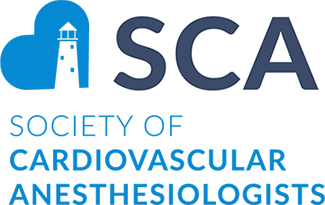First Young Investigator Awards
Recipients: Timothy Connelly MD and Arthur Wallace MD
In 1993 Dr Arthur Wallace was one of the first two recipients of the new SCA Young Investigator Award. At the time he was an Adult Cardiothoracic Anesthesiology (ACTA) Fellow at the University of California San Francisco (UCSF), having completed an MD-PhD in biomedical engineering at Johns Hopkins Medical School and an anesthesiology residency at UCSF. Dr Wallace wanted to explore the effect of hypertension on ventricular function and the $20,000 SCA grant enabled him to build a clinical system to measure end systolic pressure-volume (ESPV) and end diastolic pressure-volume (EDPV) relationships. After using it to measure ventricular function in a clinical study in 67 patients, he used the system at the San Francisco Veterans’ Affairs Medical Center (SF VAMC) in animals. He collaborated with a cardiac surgeon, Dr Mark Ratcliffe, to evaluate ventricular function using pressure-volume loops. Their work demonstrated that ventricular remodeling surgery did not improve systolic function and worsened diastolic function and led to the discontinuation of this procedure. Their further collaboration and the development of an in-vivo myocardial stiffness transducer demonstrated the feasibility of coronary artery bypass grafting (CABG) without cardiopulmonary bypass (“off-pump CABG”). Dr Wallace’s work on evaluating ventricular function led to his development of the endotracheal cardiac output monitor (ECOM) that measures changes in electrical impedance caused by pulsatile blood flow in the aorta. His extensive work on the relationship of hemodynamic perturbations and perioperative beta-blockade on myocardial ischemia and postoperative outcome provided the framework for the AHA/ACC standard on perioperative beta blockade as well as the national VA anesthesia quality improvement program (VA-AnesQIP) for all patients undergoing surgical or non-surgical procedures. Dr Wallace rose to become Chief of Anesthesia at the SF VAMC and Vice-Chair of the Department of Anesthesiology at UCSF. At present Dr Ratcliffe is developing a quantitative measure of diastolic function from an MRI using finite element analysis on the images, a direct development from his pressure-volume catheter system. As Dr Wallace himself puts it, “That $20,000 SCA Young Investigator Award was fundamental to starting my investigative career and led to most of the things I’ve accomplished.”
